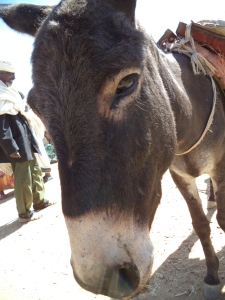Thank you Canada!
- stollie9
- Feb 21, 2015
- 4 min read
This month is the 30th anniversary of the recording "Tears are not enough" by the Northern Lights. The song was recorded by Canadian musicians to bring awareness to 1980's famine in Ethiopia. Memories of horrid pictures of emaciated children with sad, hollow faces and swollen bellies have stayed with me from that time. It was all too much for me to understand and I felt a bit disdainful over it. I'm still not quite sure what this emotion was directed at. Perhaps the thought of someone suffering, or was it something like: "Why are we worried about what they're doing all the way over there? Why don't we just worry about ourselves?".

From a young age I had an understading - some people have more than others; and it's not necessarily fair. A perception: Have or Have not? It predicts a lot. That land has pulled at me from time to time. Until recently I stared blankly at it, with a bit of a scoff. Why would I want to go there? They're starving! Well, recently I heard: great food, best coffee, amazing people. I couldn't resist. Ethiopia answered a lot of questions for me. Questions I didn't even know I had. And it sent me home with many more.

Turns out they're not starving after all. Everything grows in Ethiopia! From coffee and chickpeas, wheat, barley, maize and teff to avocado, banana, melon, berries, tomato, peppers, lettuce, pulses, beans, pineapple, you name it! It probably grows in Ethiopia. There is also a strong production of salt, dairy, honey, and livestock. Ethiopia has a population nearly three times that of Canada, in a geographical area nine times smaller. They are an excellent model for understanding sustainable agricultural and resource management in an age where concern exists over reaching a global peak population. Ethiopians were starving in the 80's. For sure. There was a drought. Rain didn't fall. Food didn't grow. It rains now. More than water, it rains aid. The UN's World Food Program still sends wheat to Ethiopia. The United States Agency for International Development (USAID) is educating farmers through the "Feed the Future" program to use "improved" seeds in addition to pesticides and fertilizers for increased crop production, attaching a new financial commitment to Ethiopia's "market economy".

I was moved by the practice of grassroots agriculture in that it held an element of life which I have not seen before. People were out in the fields with the animals, they were stacking grains on their backs and walking to pile it in a central location where it would be threshed, and later processed further. People were working hard to plant and work the land, out in the sunshine and fresh air with their animals. Draught animals were used to plough fields and transport goods to the market. The farms were alive.

I asked about all the livestock animals: the chickens, goats, sheep, camels, donkeys, and cows. There are no fences. Everyone's animals pretty much just roam around wherever they please, when they're not working that is.. (well, not camels; camels for the most part get tied up). In the countryside children shepherd them to keep them safe from predators, but in the villages, animals just roam. "Where do they sleep", I asked. "Are they lost?" The reply: "Of course not, the animals know who puts food out for them. They go there, to their home." Ah, of course. Making me question the reasons that we are still sending food aid to Ethiopia. Canada holds a high point in the minds of Ethiopians. When I identified myself as Canadian, people would rejoice. One man thanked me and asked me to thank my people when I got home: Thank you Canada, we are remembered! I was welcomed into homes to share food, drink and shelter as a result of our nations' aid efforts. The wheat we sent over in the 80's changed their lives forever and they are eternally grateful for it. It is built into their culture. Canada saved them from starvation. They all remember, and they tell their children.

In recent times, urban and info-structure development have exploded. People told me that central hydro-electric power has only been in place for 10 years in many places. (Hydro is a popular topic of conversation in Ethiopia as they are in the process of building a hydro-dam on the Nile, reducing its flow to Egypt.) During that same time frame, the internet, cellular telephone networks, and a progressive inundation of new products and ideas have been increasing in popularity and importance within society. Farming and trade continue to play a central role in the economic lifeline of villages and urban areas. According to The U.S. Government's Global Hunger & Food Security Initiative, more than 85 percent of Ethiopia's workforce is employed in agriculture. Smallholder agriculture which has been practiced for thousands of years in a sustainable fashion seems threatened by modern economically dependent industrialized agricultural practices. Food is changing in Ethiopia. Its becoming a business. Will it replace a way of life? At what cost?

Comments